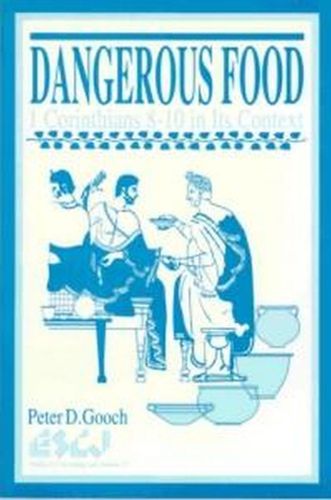Readings Newsletter
Become a Readings Member to make your shopping experience even easier.
Sign in or sign up for free!
You’re not far away from qualifying for FREE standard shipping within Australia
You’ve qualified for FREE standard shipping within Australia
The cart is loading…






Recognising the social meaning of food and meals in Greco-Roman culture and, in particular, the social meaning of idol-food, is an integral part of understanding the impact of Paul’s instructions to the Christian community at Corinth regarding the consumption of idol-food. Shared meals were a central feature of social intercourse in Greco-Roman culture. Meals and food were markers of social status, and participation at meals was the main means of establishing and maintaining social relations. Participation in public rites (and sharing the meals which ensued) was a requirement of holding public office. The social consequences of refusing to eat idol-food would be extreme. Christians might not attend weddings, funerals, celebrations in honour of birthdays, or even formal banquets without encountering idol-food. In this extended reading of 1 Corinthians 8:1-11:1, Paul’s response to the Corinthian Christians’ query concerning food offered to idols, Gooch uses a social-historical approach, combining historical methods of source, literary and redaction criticism, and newer applications of anthropological and sociological methods to determine what idol-food was, and what it meant in that place at that time to eat or avoid it. In opposition to a well-entrenched scholarly consensus, Gooch claims that although Paul had abandoned purity rules concerning food, he would not abandon Judaism’s cultural and religious understanding concerning idol-food. On the basis of his reconstruction of Paul’s letter in which he urged the Corinthian Christians to avoid any food infected by non-Christian rites, Gooch argues that the Corinthians rejected Paul’s instructions to avoid facing significant social liabilities.
$9.00 standard shipping within Australia
FREE standard shipping within Australia for orders over $100.00
Express & International shipping calculated at checkout
Recognising the social meaning of food and meals in Greco-Roman culture and, in particular, the social meaning of idol-food, is an integral part of understanding the impact of Paul’s instructions to the Christian community at Corinth regarding the consumption of idol-food. Shared meals were a central feature of social intercourse in Greco-Roman culture. Meals and food were markers of social status, and participation at meals was the main means of establishing and maintaining social relations. Participation in public rites (and sharing the meals which ensued) was a requirement of holding public office. The social consequences of refusing to eat idol-food would be extreme. Christians might not attend weddings, funerals, celebrations in honour of birthdays, or even formal banquets without encountering idol-food. In this extended reading of 1 Corinthians 8:1-11:1, Paul’s response to the Corinthian Christians’ query concerning food offered to idols, Gooch uses a social-historical approach, combining historical methods of source, literary and redaction criticism, and newer applications of anthropological and sociological methods to determine what idol-food was, and what it meant in that place at that time to eat or avoid it. In opposition to a well-entrenched scholarly consensus, Gooch claims that although Paul had abandoned purity rules concerning food, he would not abandon Judaism’s cultural and religious understanding concerning idol-food. On the basis of his reconstruction of Paul’s letter in which he urged the Corinthian Christians to avoid any food infected by non-Christian rites, Gooch argues that the Corinthians rejected Paul’s instructions to avoid facing significant social liabilities.